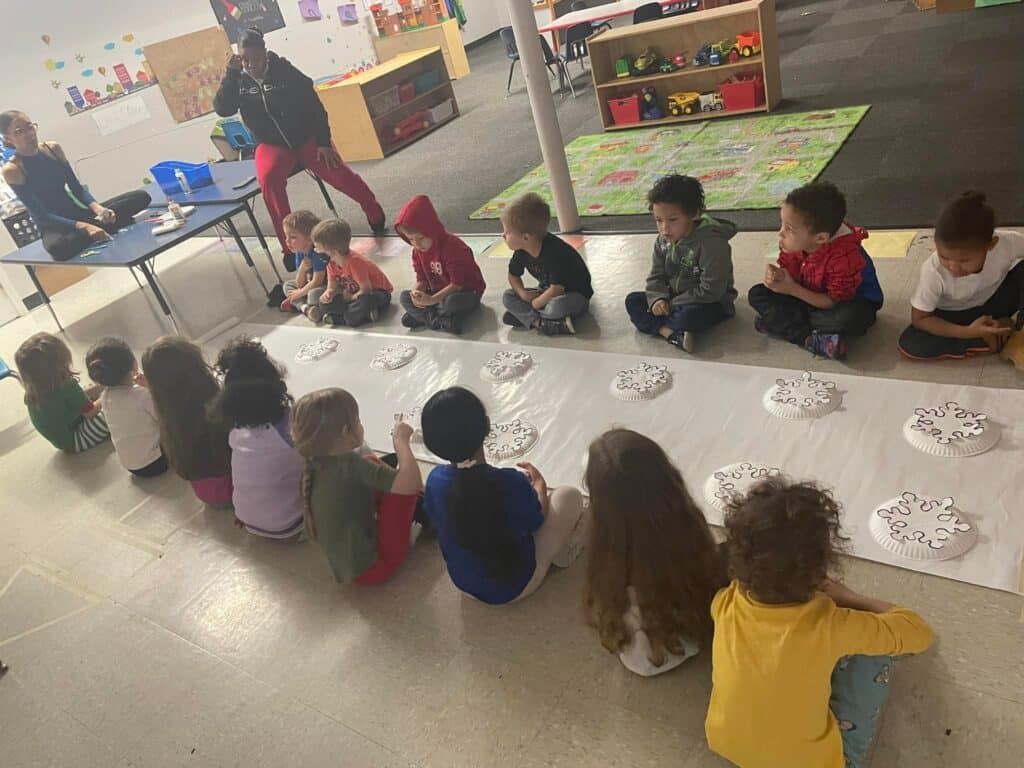All parents instinctively know there are benefits of reading to our children. But in the rush of the day, it’s hard to find time to read! Between your job, grocery shopping, sports practice, homework, and household duties, reading seems more of an inconvenience than a delight.
However, research shows how important it is that adults read to children. Here are just a few.
Build Language Skills
Children rely on adults to learn language skills, from the time they are infants to graduating high school. This is only common sense, as children learn almost everything from adults. However, children are truly remarkable at picking up language.
Babies are born a blank slate when it comes to language–they don’t inherently know their parent’s primary language. But they are quick studies!
According to What to Expect, at three to six months, babies know and respond to their own names and understand inflection (knowing if you’re pleased or displeased). At six to nine months, babies can understand simple words like “paci” or “bottle.” At nine to twelve months, they understand “mama and dada,” and the word “no”–even if they don’t like that one.
Think of when you learned a second language. Grammar and sentence structure were a part of the class, but the language made sense when you put new words in the context of a story. This is precisely what reading does for babies and children!
Stories–especially good ones that can be read over and over–allow children to not only be exposed to new words but understand their meaning because they are in the context of a story. When a story is repeated, or maybe even memorized, children absorb the language to a greater degree because they are rehearsing the meaning of each word.
Increased Vocabulary
Children who listen to books have a broader vocabulary and understanding of the world around them. They develop greater thinking skills and understand emotions better. There are many wonderful stories that teach valuable life lessons and show other points of view.
Many stories use words that we don’t use in our everyday conversations. This means reading to children exposes them to new, beautiful, and interesting words, which develops the brain to help children better understand narratives and picture the stories in their heads.
Improve Literacy
Research shows a strong connection between reading aloud to children and advanced literacy skills. Children who were read to, beginning at six months, scored higher on literacy scores in formal schooling than children who were not read to.
Literacy impacts a child’s overall education, and by extension, the trajectory for their adult lives. Children who are literate will be more likely to do well in school, which helps them in college, their careers, and the rest of their lives.
Emotional Bonding
There is a deep emotional connection that takes place when reading with a child! While it may feel like an inconvenience, more often than not, both the adult and child will experience a positive connection after reading together.
Technology Can’t Replace Reading
What about listening to a children’s podcast, audiobook, or television series?
Simply put: it’s not the same!
Babies can make no sense of stories without a visual context, but even the American Academy of Pediatrics states babies under two shouldn’t watch television. There’s a reason babies are so fascinated by another’s facial expressions, inflection, and mouth. Babies will frequently reach to touch your mouth or neck while you’re talking to understand how to move their lips and tongue to form words.
Toddlers and young children may understand basic stories from an audiobook or television show, but there is no emotional bonding, and oftentimes, there can be a technology “crash” after turning it off.
How Do I Start?
Hopefully, you are inspired to read to your child, but maybe you’re feeling overwhelmed and don’t know where to start. Luckily, reading to your child is easy!
First, set reasonable expectations based on your child’s age and how much time you have. Babies won’t sit for long periods of time, and children who aren’t used to reading stories may not sit for a long time, either. Start small by reading one short book and aim for just a few minutes of reading a day. Slowly add in one or two more stories, then add in longer stories.
Before you know it, both you and your child will enjoy reading together!
Children’s Academy Childcare and Preschool Values Reading
At Children’s Academy, we understand how important it is to read to babies and children. That’s why we prioritize read-aloud time in our daily routine. While you should still read with your child, you can rest assured that your child is listening to quality stories and experiencing all the benefits of early-age literacy.

Children’s Academy Childcare and Preschool is proud to offer an outstanding curriculum that is educational, fun, and prepares your child for kindergarten per state educational standards.
If you’re looking to give your child a head start in school, contact Children’s Academy Childcare and Preschool today!

